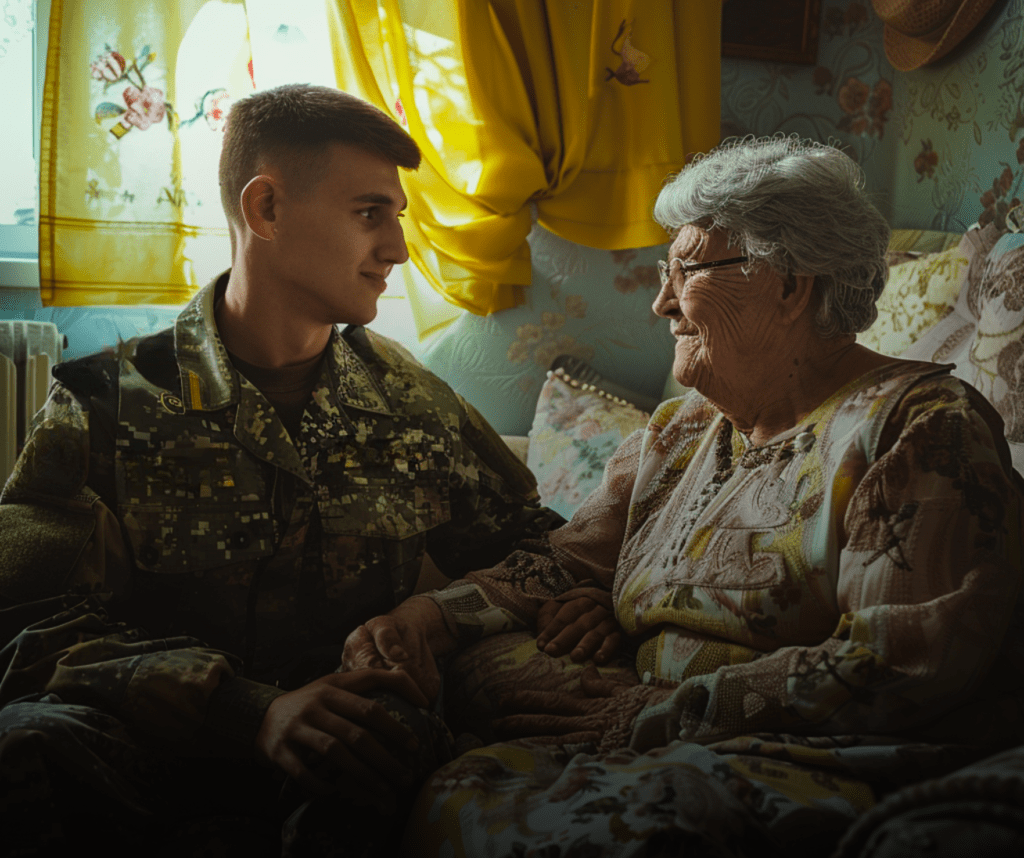I am Mariya Borevich, your personal lawyer. My primary goal is to help clients find optimal solutions to current legal issues, ensuring reliable protection of their interests. I specialize in family, civil, and military law, which allows me to effectively handle a variety of situations and cases. In family law, I provide support in resolving issues related to divorce, property division, establishing and challenging parental rights, alimony, and child custody. I understand that these matters are often emotionally complex, so I always strive to find the most delicate and fair solutions for all parties involved. In civil law, I assist in settling disputes related to contracts, property rights, compensation for damages, inheritance, and other issues concerning the protection of personal and property interests. Special attention is given to military law — supporting servicemen, protecting their rights and interests related to military service, social guarantees, and legal disputes. This area requires deep knowledge and understanding of the specifics of military service and the legislation regulating it.
Discharge from the Armed Forces for care is a procedure where a serviceman has the right to be discharged from military service to care for persons in need, on grounds specified by law. Such a possibility is provided for by the legislation of Ukraine for servicemen who have relevant circumstances.
Grounds for dismissal from the Armed Forces for care:
- Dismissal from military service to care for parents, wife (husband), child or other close relatives.
- Dismissal from military service to care for grandmother, persons with disabilities or the sick who need constant external care according to the conclusion of the medical advisory commission (LCC).
- Exemption for taking care of a sick child who has been disabled since childhood or a person with a disability of group 1 or 2 after the age of 18.
Release procedure:
- Submission of a report: A military serviceman submits a report to the commander of a military unit about the desire to resign for care, in which he notes the grounds for dismissal. Documents confirming the grounds for dismissal are attached to the report.
- Consideration of the report: The command of the military unit considers the report and documents. If the circumstances are confirmed, the serviceman may be dismissed from military service.
- Obtaining an order: If the grounds for dismissal are confirmed, the commander issues a corresponding order on the dismissal of a serviceman from military service.
A military serviceman must provide evidence that he is the only person who can provide care. The conclusion of the LCC should be supported by medical documentation that clearly indicates the need for constant care. If there are doubts about the legality of the refusal to release, the serviceman can apply to the military prosecutor's office or to the court.
Legal assistance in leaving military service can be important to ensure the correct processing of documents, protect the rights of a serviceman and avoid possible obstacles from the command. A military lawyer or lawyer can provide support at all stages of the process of liberation of the Armed Forces.
Question
When do you need the help of a lawyer?
Answer
Difficulty in submitting a report if the command refuses to accept the release report or delays consideration of the application. Unlawful refusal to release: if a serviceman has provided all the necessary documents, but he is refused release in violation of the law. Conflicts with the command: for example, in cases where the command creates obstacles or puts pressure on a serviceman. Procedural violations: if during dismissal the command violates the order or terms of dismissal, which may negatively affect the rights of the serviceman. Litigation: if a serviceman needs to go to court to protect his rights (for example, in cases of illegal refusal of dismissal or delay in payments).
The main stages of legal support:
- Consultation: the lawyer will explain the dismissal procedure, evaluate the documents and circumstances, and provide recommendations for further steps.
- Drafting and submission of a report: a lawyer will help to correctly draft a report for dismissal, including all necessary grounds and references to regulatory acts.
- Assistance in collecting documents: a lawyer can help with the preparation of documents such as medical certificates, opinions of the medical advisory commission (LCC), confirmation of family ties or other grounds for dismissal.
- Appeal against refusal: If the command refuses to dismiss, a lawyer can assist in appealing this decision through the court or the military prosecutor's office.
- Representation in court: if necessary, a lawyer can represent a serviceman in court to protect his rights to care leave from the Armed Forces appropriate payments.
- Protection of rights after dismissal: a lawyer will help to receive all the appropriate payments and benefits that a serviceman must be paid after dismissal from military service.
Documents that may be required:
- Passport and identification code.
- Military ticket.
- Medical certificates and health reports or other documents supporting the grounds for dismissal.
- Conclusion of the LCC (if we are talking about dismissal for care).
- Documents confirming family ties (if required).
Dismissal from the Armed Forces for the care of parents is possible in cases where a serviceman is the only person who can provide constant care for his parents, if they need such care. For successful release, you need to go through the process defined by law, which involves submitting relevant documents and confirming the need for care leave.
The main stages of the parental exemption process:
- Preparation of documents confirming the need for care: in order to initiate the release process, a serviceman must prepare the following documents.
- Drawing up a report for dismissal: a serviceman must submit a report to the commander of a military unit with a request for dismissal due to family circumstances, namely discharge from military service for care of parents. The report indicates the circumstances confirming the need for care, and attaches relevant documents (medical conclusions, certificates, confirmation of family ties).
- Consideration of the report by the command: the command of the military unit considers the report and checks the documents. If the documents confirm the legality of the claim, the commander can make a decision on dismissal. The military unit can send additional requests to confirm the information, for example, to medical institutions.
- Medical board (if required): In some cases, to confirm the need for constant care, an additional medical examination of the serviceman's parents may be required to obtain a conclusion about their state of health.
- Obtaining a release order: after reviewing all documents and reports, the commander of the military unit issues an order to release a serviceman. The order to dismissal of the Armed Forces can be approved by the higher command, depending on the specific procedures in the military unit.
- Payment of adequate funds: upon release, all appropriate funds shall be paid to a member of the military, including compensation for unused leave, if any.
You must be the only person who can take care of your parents. If there are other relatives who can perform these duties, the command may refuse to release. Medical conclusions must be reliable and confirmed by a medical advisory commission. If the command refuses to discharge from military service for care obstacles, you can apply to the court or the military prosecutor's office to protect your rights.
Legal support in the process of dismissal from military service for care can be useful at all stages of this process, especially if there are problems with obtaining documents or there are refusals to discharge from military service from the Armed Forces. A lawyer can help:
prepare a report and correctly draw up documents;
challenge wrongful refusals to dismiss;
represent your interests in court or before the command.
Therefore, if difficulties arise in the process of dismissal, it is advisable to contact a military lawyer for advice and legal support, since the process may include interaction with medical commissions and unit command in the process of dismissal from the Armed Forces of Ukraine for care.
Obtaining advice and support from a lawyer from our service Consultant can significantly simplify the process of dismissal from military service of the Armed Forces, especially if conflict situations with the command or violations of the law arise. Legal assistance guarantees that all the rights of a serviceman will be respected, and the release process will be carried out without violations.

































